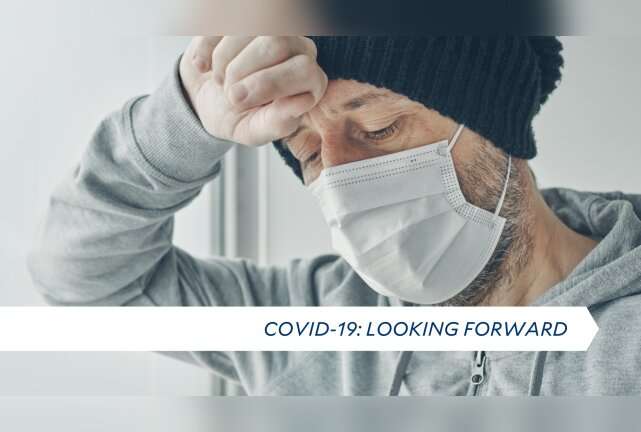Long COVID presents new challenges for the years ahead

The SARS-CoV-2 pandemic's acute effects on people's lives has appropriately held the nation's attention, but the long-term effects that many people suffer is garnering increasing attention. Now officially termed Post-Acute Sequelae of SARS-CoV-2 (PASC), but formerly known as Long COVID, this syndrome represents a debilitating constellation of symptoms that persist long after a period when people should have recovered from the initial stages of the illness. People with Long COVID report fatigue, "brain fog," gastrointestinal disorders, sleep disruptions, anxiety, muscle aches and much more. Surveys conducted by remarkable patient groups have found great heterogeneity among individuals in their types and cadence of their symptoms. Long COVID occurs in people who were initially very ill and in those who were initially without symptoms. One study from the UK reported that a median of five months after hospital discharge for COVID-19, only 29% felt fully recovered and one in five had a new disability—almost 40% had a severe or very severe mental and physical health impairment.
With millions of people hospitalized and many more millions infected with SARS-CoV-2, the implications for Long COVID are profound. We have large numbers of people facing the prospect of a chronic condition without diagnostics or therapeutics. We are facing a post-viral condition of potentially historic proportions and are almost completely in the dark about the underlying mechanism. Both individual reports and the studies to date paint a picture of lives changed overnight, as people struggle to make it through the days and face a health care system that can offer no substantive assistance. The fact that the pandemic had disproportionate impact on minority communities also heightens the importance of a focus on these communities as we seek to mitigate the effects of Long COVID. And for all people, this syndrome can leave long-lasting financial toxicity, which is so damaging at a time that they may not be able to work—and are in danger of losing insurance coverage.
At Yale, we feel the suffering and are responding on many fronts. In the clinical arena, we have launched efforts to provide care and be ready to translate new research insights into practice. In research, we have linked efforts across the basic sciences through to outcomes research and public health to create an infrastructure ready for rapid-cycle discovery and application. Also, we are working avidly with patient groups to ensure that we are tapping their wisdom and engaging them as true team members. Our ignorance about Long COVID is profound, and we will only make rapid progress by working together, including those affected. We are also seeking novel research designs and to leverage digital health platforms to speed the movement of data and empower our research participants. We launched the earliest Long COVID study with the CDC—and are positioned to partner with the NIH on their large-scale efforts ahead.
The nation is in the midst of fighting a terrible pandemic. Nevertheless, the suffering will not stop when we quell the spread of the virus. We need to be prepared to address the post-pandemic syndromes that will affect millions. Now is the time to make that investment.
More information: undefined undefined et al. Physical, cognitive and mental health impacts of COVID-19 following hospitalisation – a multi-centre prospective cohort study, (2021). DOI: 10.1101/2021.03.22.21254057



















